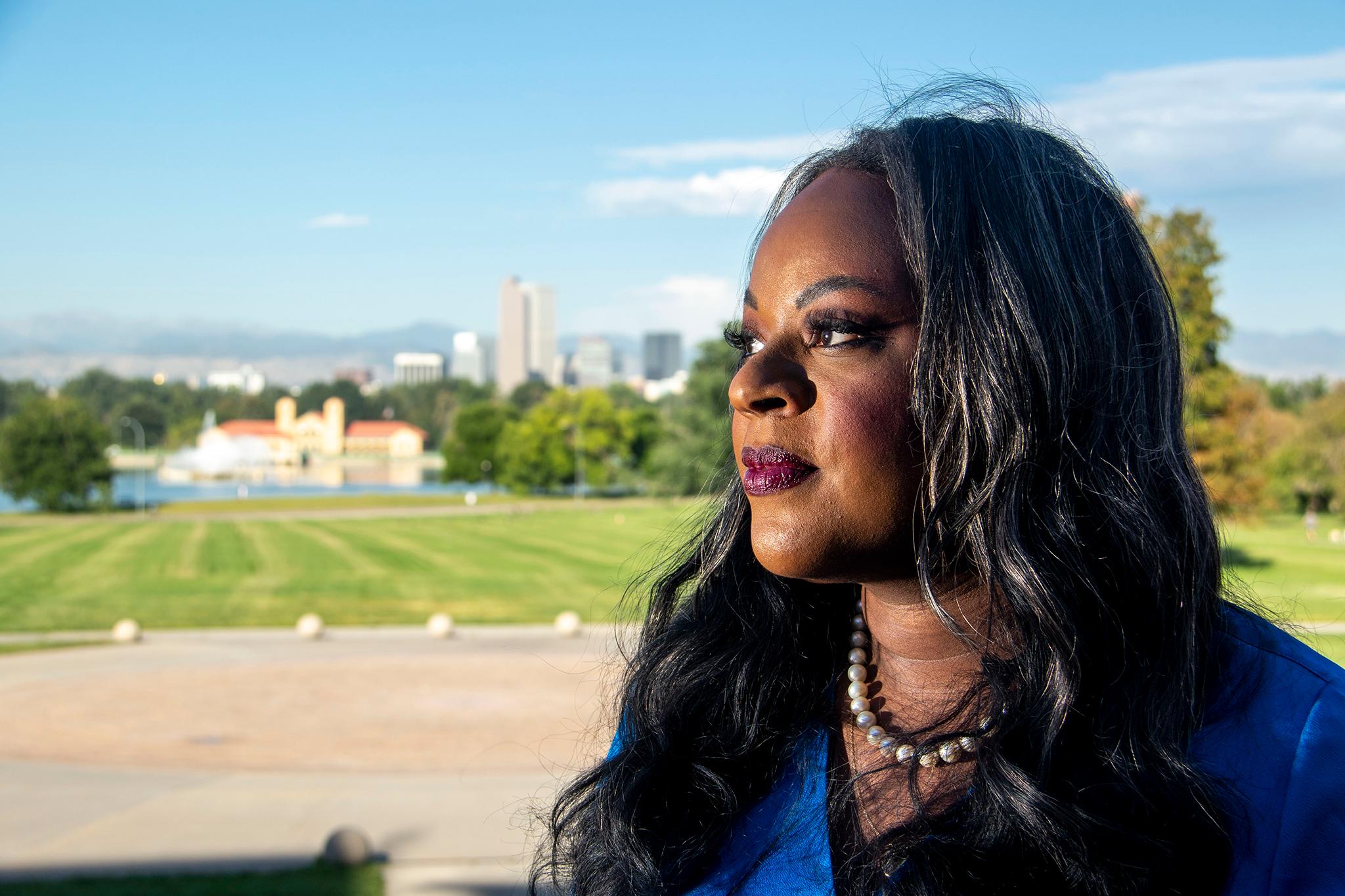Mayoral candidate and State Rep. Leslie Herod says she's the person who can make Denver the safest city in the U.S.
Herod, the daughter of a law enforcement officer of 30 years, has a long track record advocating for and passing legislation related to criminal justice reform, police accountability and drug policy. For years, she's been an outspoken voice against police killings and excessive uses of force by law enforcement.
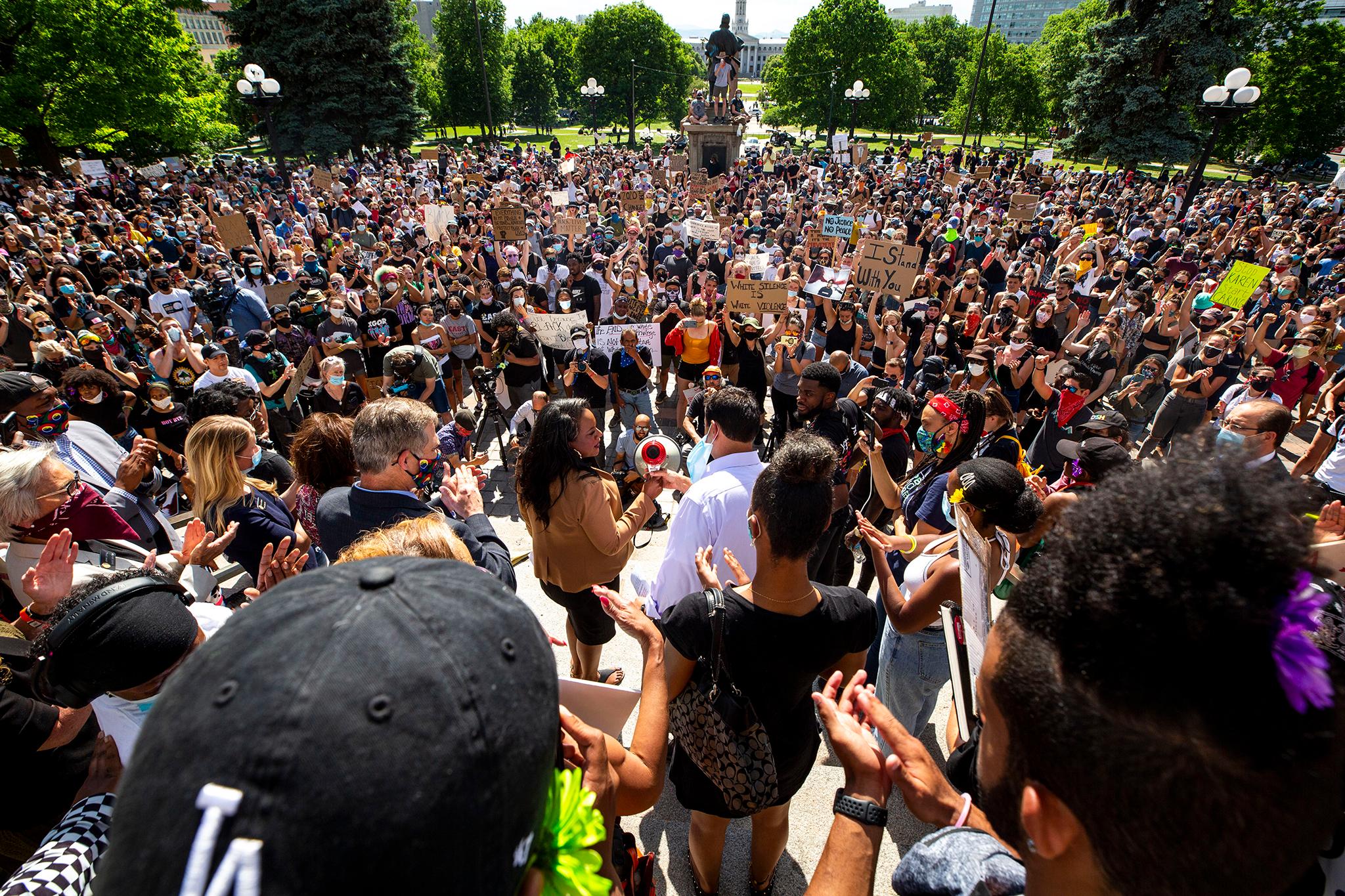
She participated in the George Floyd protests during the summer of 2020, connecting what was happening in the streets with concrete policy in the Capitol. She nearly took a bullet in the process.
At the legislature, she was a champion of Caring 4 Denver and now chairs its board. The program raises millions for mental health care and addiction treatment each year.
At the Statehouse, Herod's been a primary sponsor of bills to reduce fees juveniles have to pay in the criminal justice system, to decrease penalties for drug possession from felonies to misdemeanors and to ensure law enforcement is accountable to the law.
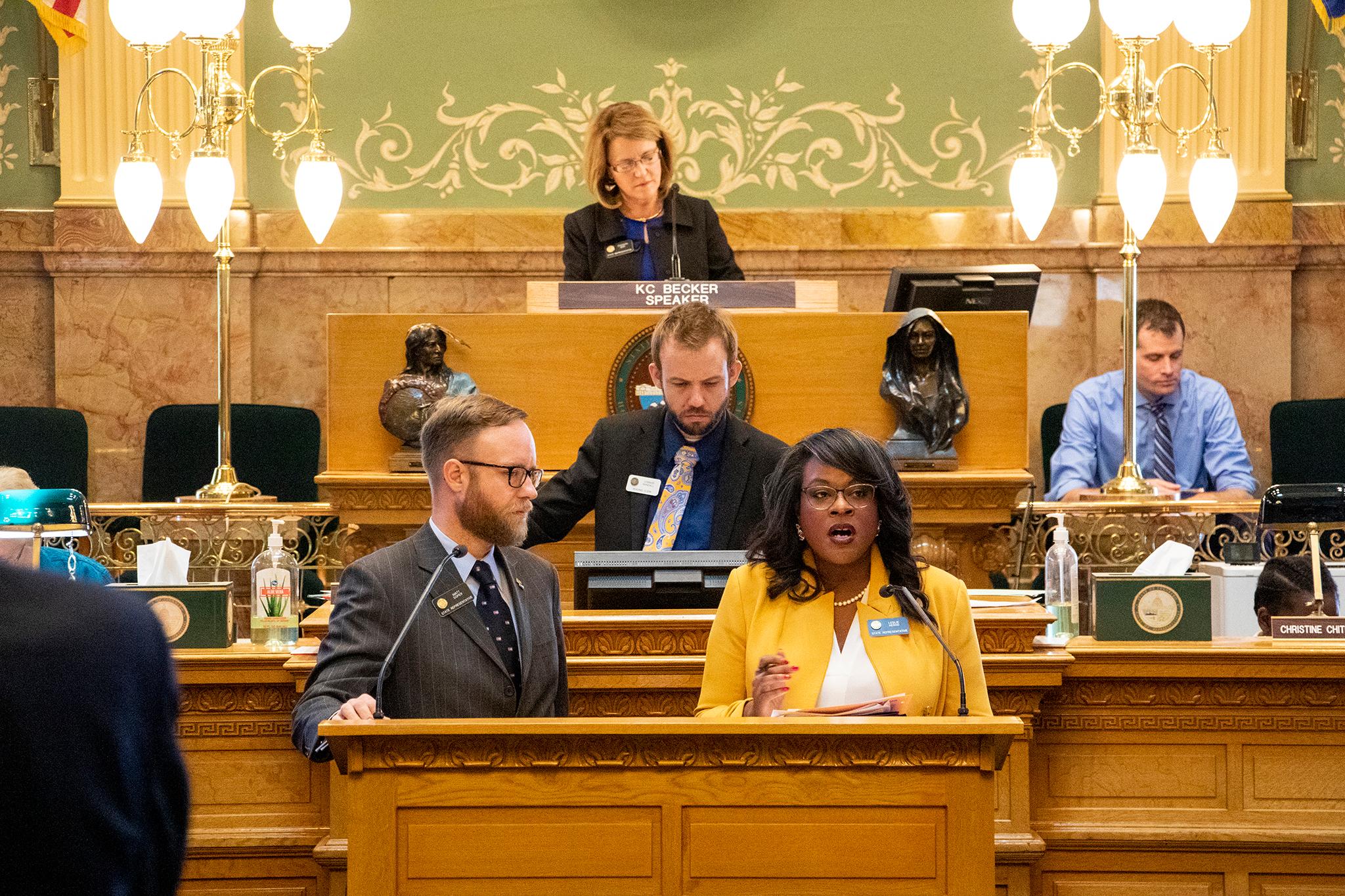
Champions of harsher sentencing and opponents of harm reduction blame many of Denver's ills -- street-level homelessness, the opioid crisis, the struggle to recruit police officers -- on policies she's pushed.
Former Denver Mayor Wellington Webb, who told Denverite making Denver safe should be any mayor's number-one priority, endorsed her this week -- a day after she released her official community safety platform.
How she positions herself on issues of crime, public safety and mental health will be a big point of debate as she campaigns to become Denver's boss and appoint the heads of the Department of Public Safety, the police, sheriff and fire departments and the Department of Public Health and Environment.
So here's her take on making Denver safer.
"We have an opportunity to create a true community policing program that works for everyone in our community, prioritizes safety, and empowers officers to have the tools and resources they need to protect and serve," Herod's new community safety policy states.
That means training officers and first responders in de-escalation, beefing up the number of investigators focused on solving crimes and doing more to recruit and retain officers.
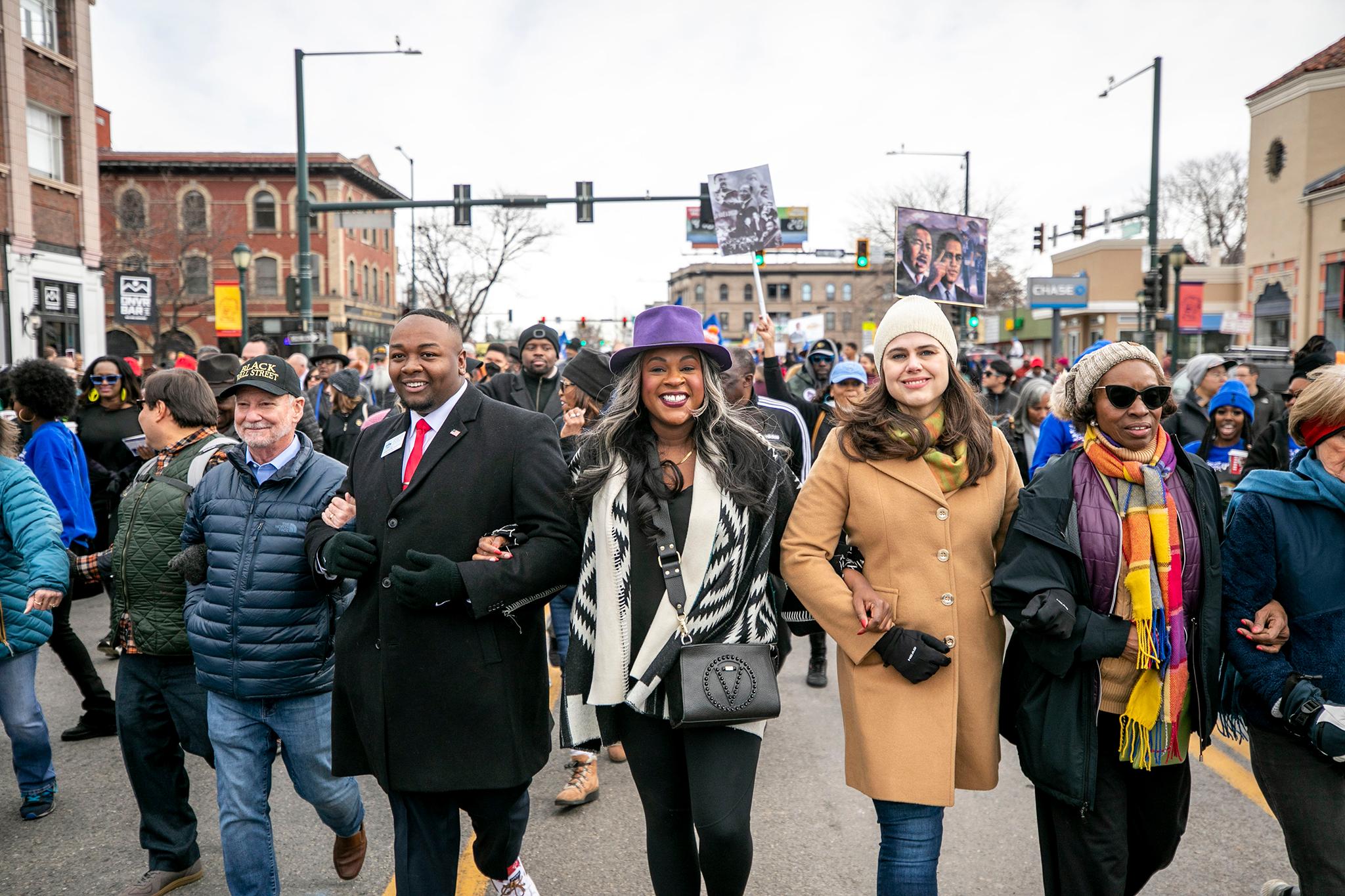
Using jails to fix people who are struggling with addiction and mental health issues and aren't committing violent crimes doesn't work and wastes money, the plan states.
Herod sees jails as overused and over-capacity. Sheriff's deputies are overworked. She wants the city to spend more on drug and mental-health treatment options and alternatives to incarceration for people who aren't violent.
"What we're trying not to do is create a situation where we're doing whack a mole, where we're not getting at any of the root causes. We are locking up people for far too long, and then someone else is just coming up in their place, you know, to commit more crimes," Herod said. "That doesn't work."
Herod wants to curb youth violence through summer internship programs in partnership with the business community and by doubling the number of after-school programs. She also wants to end the "school-to-prison pipeline" by focusing on restorative justice.
When asked if she would contract with gang members on gang prevention efforts, Herod said she would consider it because peer support is one of the best tools to reduce crime.
"If people are leading kids, young people, away from violence, away from crimes, we've got to put strategies in place that actually work," Herod said.
As for addressing gun safety, she plans to enforce red flag laws she helped pass at the Statehouse. And she wants to impose waiting periods for gun purchases.
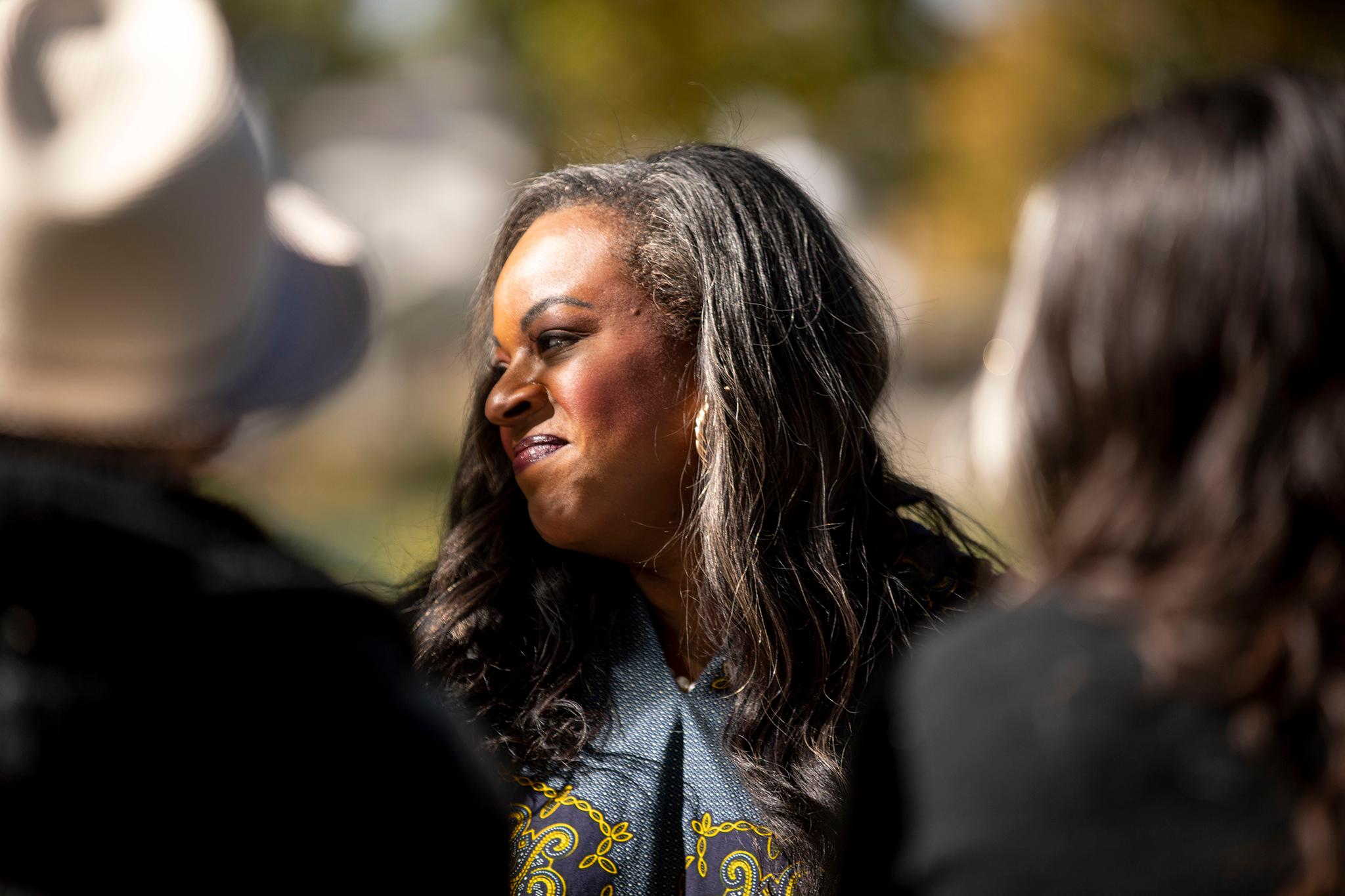
She pledges to get unhoused residents "inside to safe places" and increase the number of outreach workers on the streets making referrals to available resources.
She also plans to better fund those resources, so city workers aren't just sending those in need to another agency continuing an endless loop.
She would also improve the quality of shelters so people currently living on the streets have a better place to land and transition toward stable housing.
Herod wants to expand access to mental health treatment for all residents and strengthen the presence of the police alternative Support Team Assisted Response program that sends mental health responders to non-emergency calls.
She also wants all first responders to be trained in crisis management and de-escalation.
Under Herod's leadership, the city would dedicate extra resources to ending hate crimes, including dedicated hotlines, more law enforcement training on the issue, and creating a community liaison to inform more people about the resources available to address such incidents.
Herod also plans to handle Denver's rise in porch piracy and car theft. How? "Victim help lines, warning signs, increased media coverage and public education, strategic law enforcement coverage, and environmental changes."
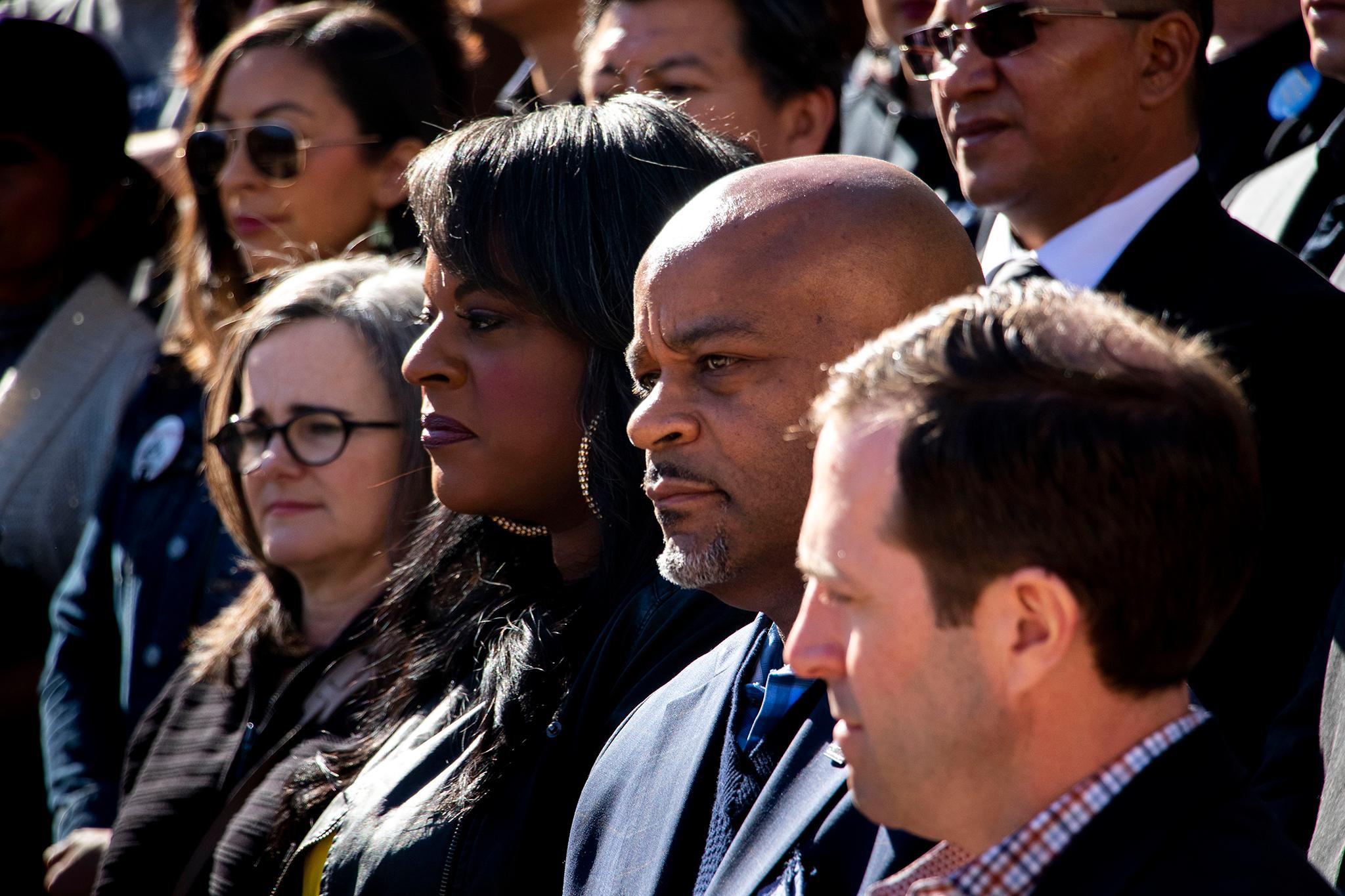
Herod is a harm-reduction advocate.
She supports peer navigation programs between current and former drug users and the creation of safe-use sites, where people can do drugs under medical supervision and also have access to treatment. Those sites, she said, have to be regulated, monitored and run by trusted institutions.
Proponents say such supervised use sites -- which would be permitted in Denver, if state law changed -- can reduce overdose deaths and give people a path to treatment, while critics worry they ruin neighborhoods and attract crime.
Herod has visited a safe-use site in Vancouver, British Columbia with that city's chief of police, and she was impressed with what she saw and learned.
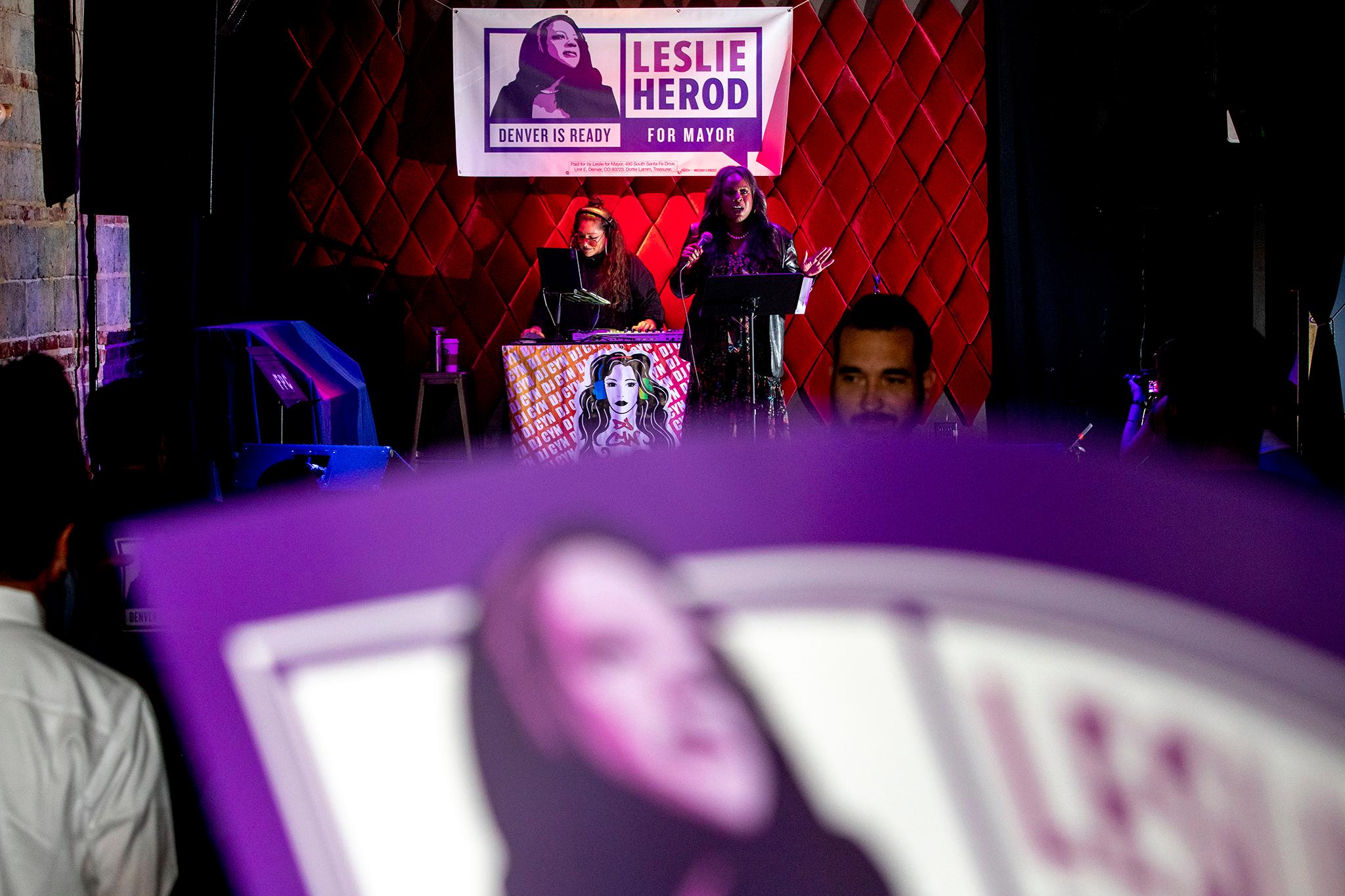
"People don't seek help when they're seeking drugs,'" she said. "So those supervised-use sites are actually a great place to help people figure out how to get on that path to recovery, offer them services, give them trust, give them hope again. And we see people moving from those sites into treatment. In fact, there are sites in Vancouver that are dual: supervised use sites on the bottom level and treatment up top."
For Herod, the best way to fix crime is by addressing its root causes. She sees those as economic, housing and health insecurities.
Part of that is beefing up after-school and summer programs and internships, and partnering with businesses to create jobs for young people.
She said her campaign will be rolling out more detailed plans to address related issues, including homelessness and housing insecurity, addiction and substance misuse and mental health issues in the weeks to come.
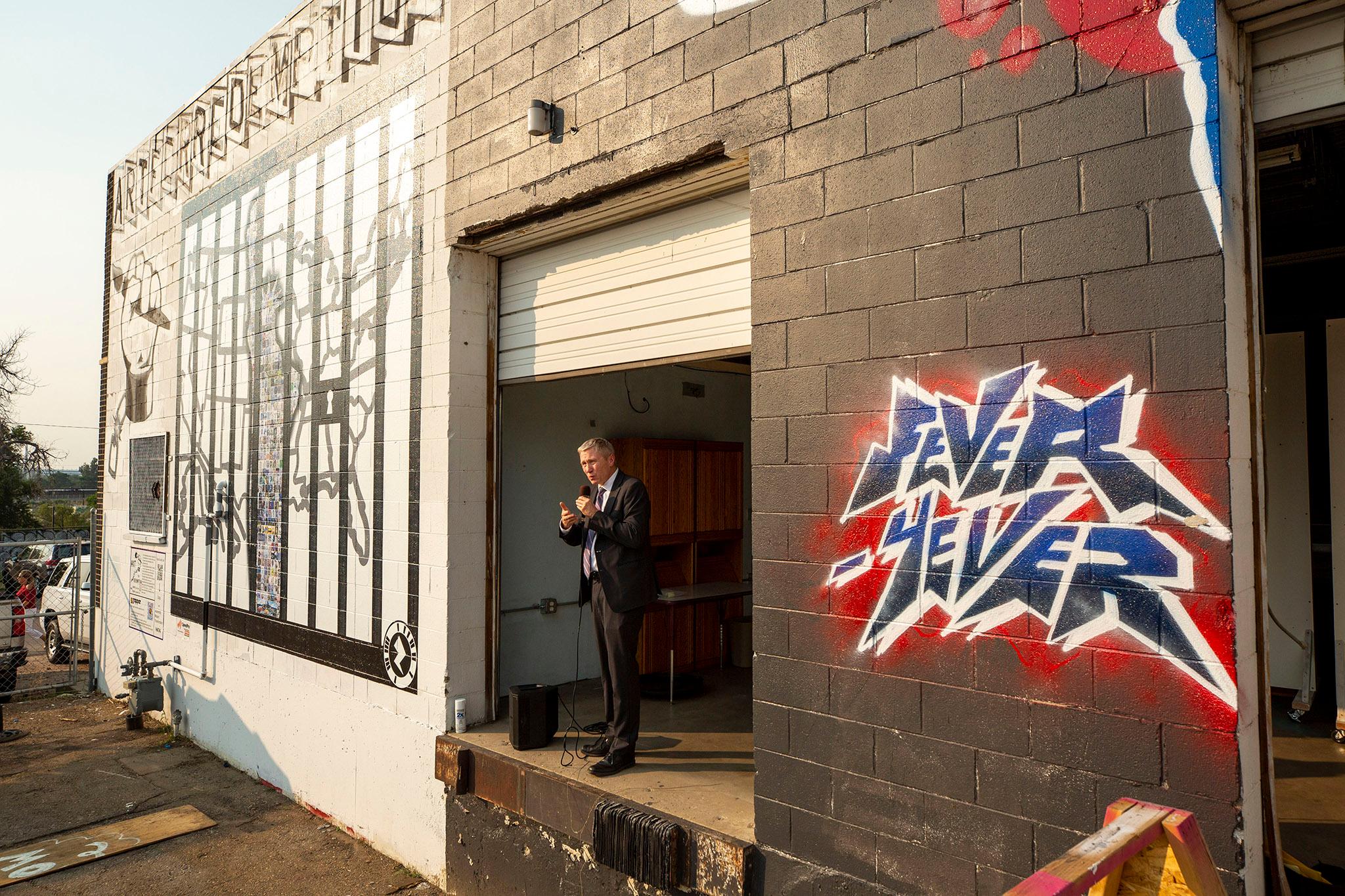
Herod launched her safety plan in the company of two heavyweights in the Colorado criminal justice conversation.
The first was the reform-minded former Executive Director of the Colorado Department of Corrections Dean Williams and also former Republican lawmaker turned independent Rep. Cole Wist.
Wist counts Herod among his friends at the statehouse. They worked together on Colorado's red flag gun law.
Tired of "glib sound bites" from both sides of the aisle on solving crime, Wist said he learned to respect Herod's approach to criminal justice.
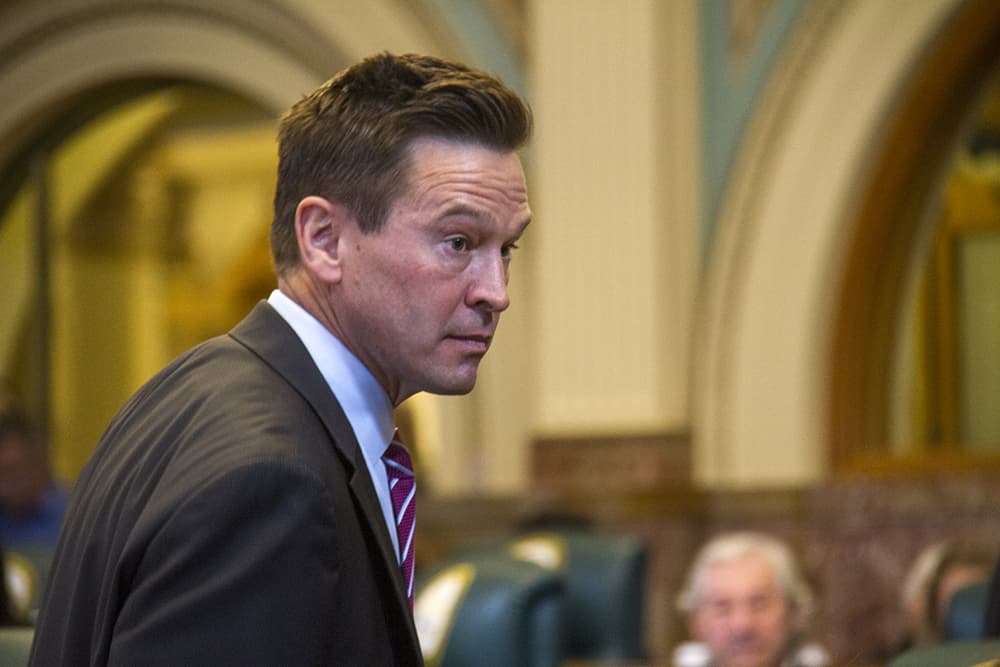
"She tries to look beyond those sound bites and tries to bring smart people together," Wist said. "And it doesn't matter whether those are conservative solutions or progressive solutions. It's that they're the right solutions."
Over his four years as head of the Department of Corrections, Williams attempted to reform the prison system and viewed Herod as an unlikely ally and friend in his efforts.
"I was serious about changing the paradigm on what was happening with Corrections, the high recidivism rate, and the public safety threat that people getting out of prison, committing crimes, going back to prison creates not only for the city of Denver, but of course, the entire state," he said.
One of the mayor's primary responsibilities is hiring and firing department heads -- including the leader of the Department of Public Safety.
Herod is not ready to state who those people should be, but it sounds like she's ready for change.
"The fact that we have rising crime, the fact that we have a workforce that is feeling pretty demoralized, the fact that we have a city that is demanding something different -- this is a really tough position," she said. "All of these positions in public safety are really tough positions."
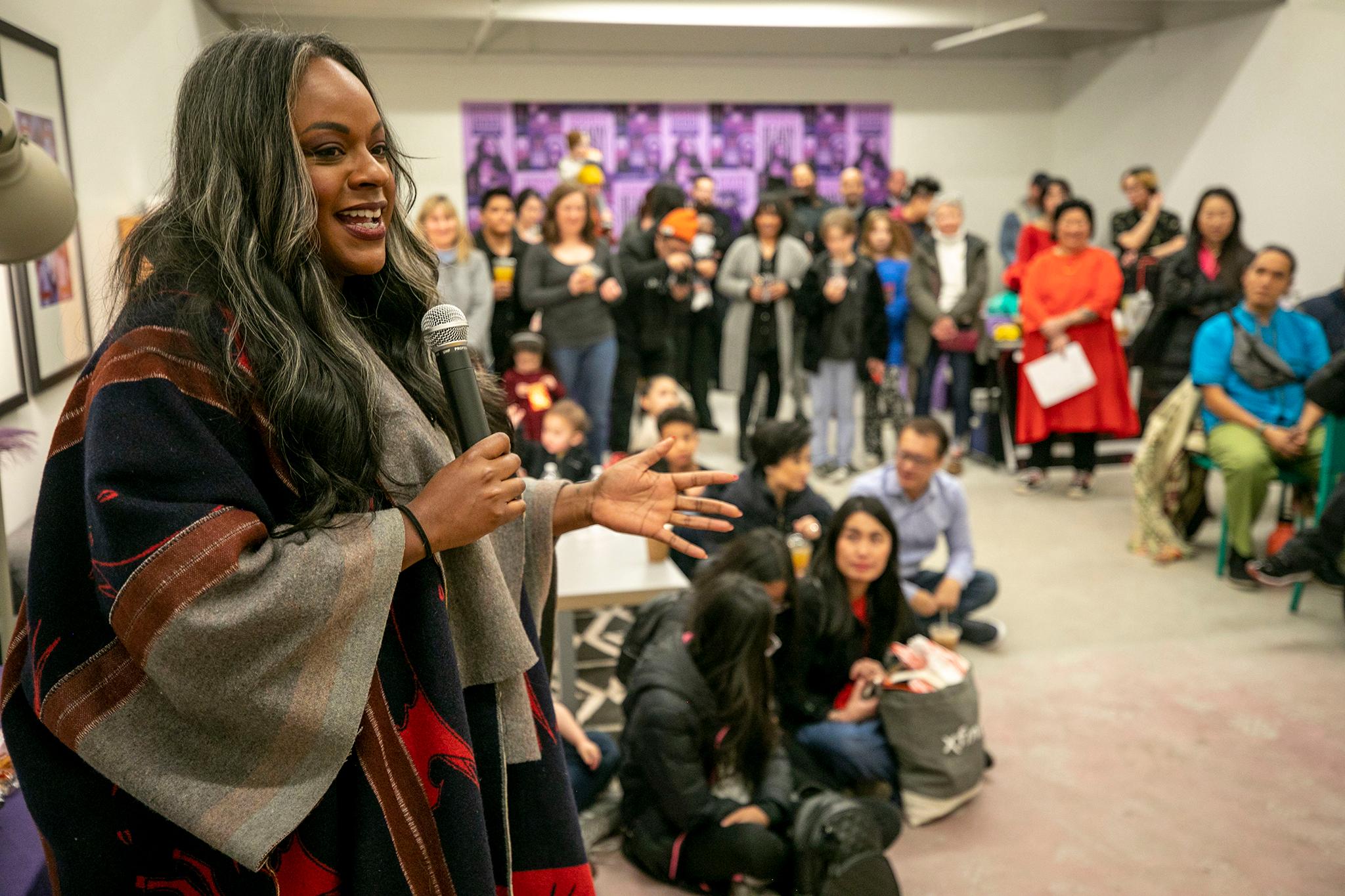
In hiring, she's looking for someone who can implement her plan and who has the ability to retain and recruit staff and ensure they have the resources they need.
"I want somebody who's community-based, but also has the trust of the folks that work for them," Herod said.
As mayor, if people die at the hands of law enforcement, she would be the boss. How would she handle such situations?
"Transparency is my commitment to the people of Denver," she said. "Communication and directness is my commitment to the people of Denver. I think that's of the utmost importance. But I think we also have to understand that it's a very difficult job.
"There is a fine line before you get to excessive use of force," she said. "I've worked in the legislature to make sure that that line was more bright, to look at police accountability."
She takes pride in saying that Colorado is the first state in the nation to pass comprehensive police accountability reform but also acknowledges excessive use of force continues to occur.

"I also will say that the taxpayers are paying a lot of money dealing with excessive use of force," she added. "Why not, instead, spend that money on making sure our officers are the best trained in the nation? Why not make sure that we have community safety that really does engage and involve community, so we don't have to get to that point?
"I'd like to see us never have to tell a young person's mother that their child was lost at the hands of law enforcement wrongfully," she said. "I hope that never happens. And we'll put every effort in place to make sure it doesn't. But if something happens, my commitment is transparency and conversation."

